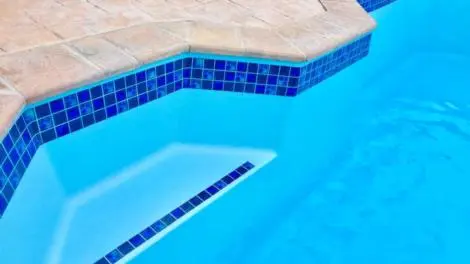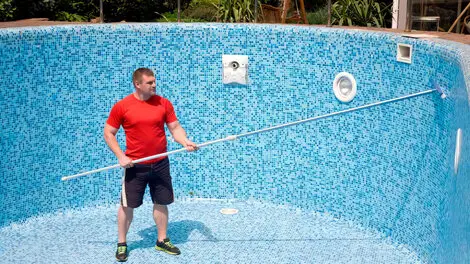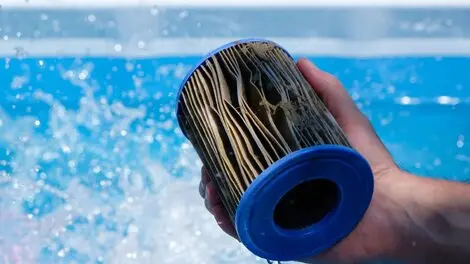Any lawn enthusiast would wonder if chemicals in the pool water might damage their beautifully designed lawns.
Good news! If you are well-prepared, you don’t have to be worried. Most of the time, little splashes of swimming pool water here and there won’t affect your garden plants or the grass growing on your lawn to cause significant issues.
Your yard is affected only if the water has a higher concentration of chlorine or salt. This guide will inform you about the impact of these chemicals on yard grass or growing plants so that you’re aware of the potential damages and can prevent them.
So, continue reading to know more.
Can Pool Water Kill Your Plants Or Lawn?
A higher concentration of chemicals in pool water may lead to a pH imbalance in the soil it comes in contact with. And, of course, saltwater affects lawn grass and salt-sensitive plants differently. Excess salt might not allow them to absorb essential minerals, nutrients, and water as they already consist of salt in smaller amounts.
Let’s discuss the impact in detail.
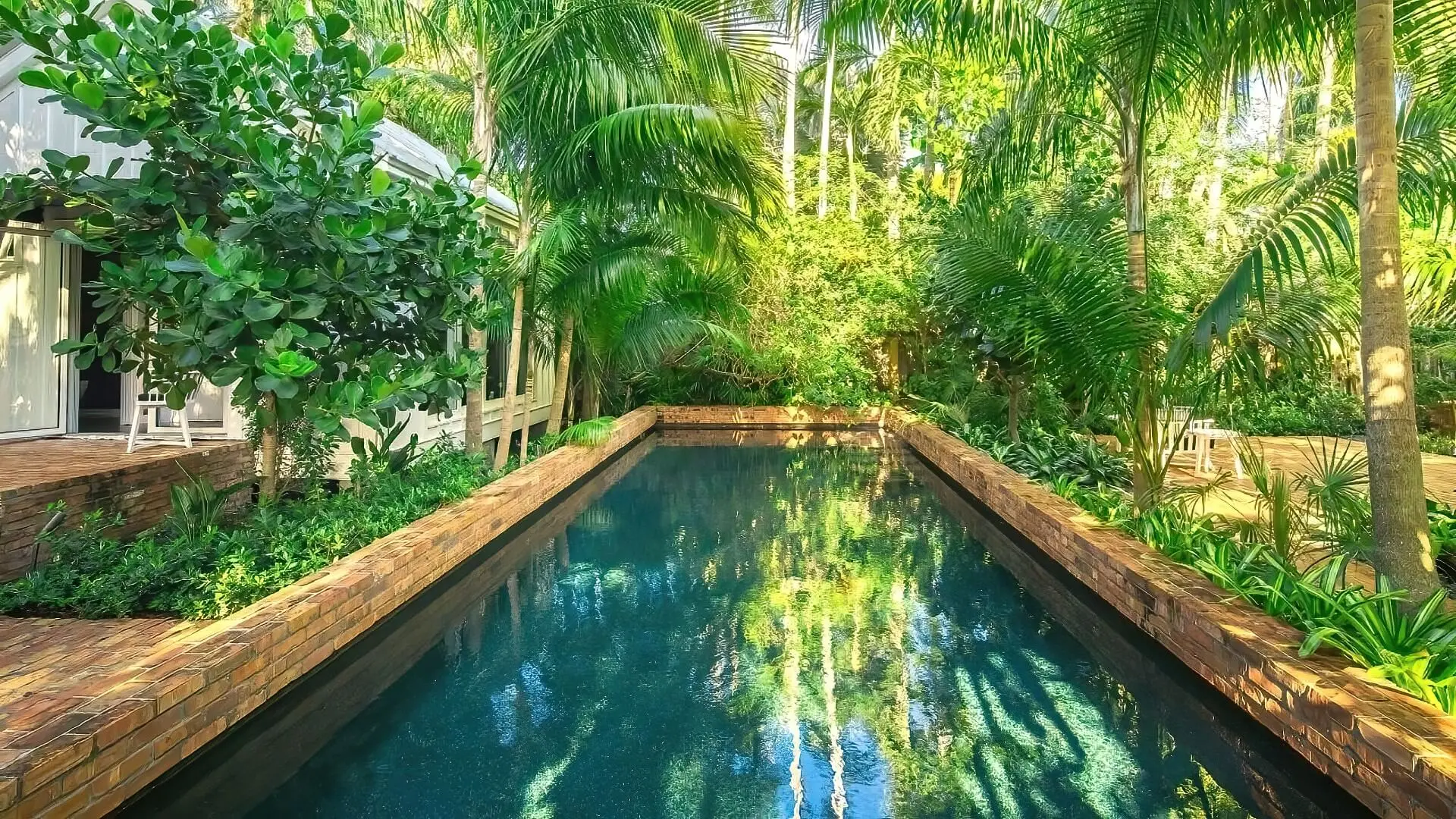
Chlorinated Pool Water
Most people should know that undiluted chlorine concentration can be harmful to garden plants or living beings (thanks to science classes in school) due to changes in the pH of the soil. On the other hand, chlorine is not harmful in its diluted form (or when mixed with water). So briefly, we can say small splashes of water on your lawn might not impact it whatsoever.
However, it is not as simple as it seems to be. Here, we are talking about small splashes of water on lawn plants where the amount of chlorine levels (diluted) is minimal. It means that it cannot alter the pH of the soil, leaving it undamaged.
Contrarily, if a large amount of chlorinated water splashes in your yard, it will be a different scenario altogether. While emptying your pool area, ensuring that the chlorine level is less than 0.1 ppm (parts per million) will be essential. Anything higher than that will cause the potential death of your plants.
Undiluted chlorine can damage grass and plants growing on your lawn. So, just be a tad bit careful before spilling any of it. Maintaining the proper pH level of pool water is essential for keeping it sparkling clean and protecting equipment like pumps and heaters from damage.
To attain that, the water in a pool may need to be changed regularly. And during the process, there might be a need to splash out the water on your beautiful lawn. In that case, ensure you immediately dilute the area with fresh water to get the pH level back on track.
So, if the question arises, does chlorinated water damage the lawn? The answer will be “No, provided it is diluted.”
Salt Water
You might enjoy beaches and seawater, but that might not be the case with your lawn grasses. After all, salt and plants are not friends, and having an excess amount of salt in the pool can damage the health of your lawn.
When a plant is exposed to excessive quantities of salt, it enters the tiny pores in roots through which nutrients and water enter. This prevents the proper entry of water or nutrients, causing significant damage to plants or grass over time.
We recommend quickly washing the lawn with fresh water after the water splashes from the pool. This will help wash away the deposited salt.
Besides just splashing water on the lawn, you can install a drainage system that takes the water outside, saving you from the hassle of doing it manually.
Turf To Be Installed
Installing suitable turf around the pool has recently been an emerging trend. It provides a softer look and doesn’t burn your feet, usually while walking on hot pavers.
If your pool water has excess salt, having a high-quality turf like the Sir Walter DNA Certified Turf, tolerant of salt or harmful chemicals, would be good. And if you don’t want to spend extra bucks, follow the steps mentioned earlier to get rid of salt.
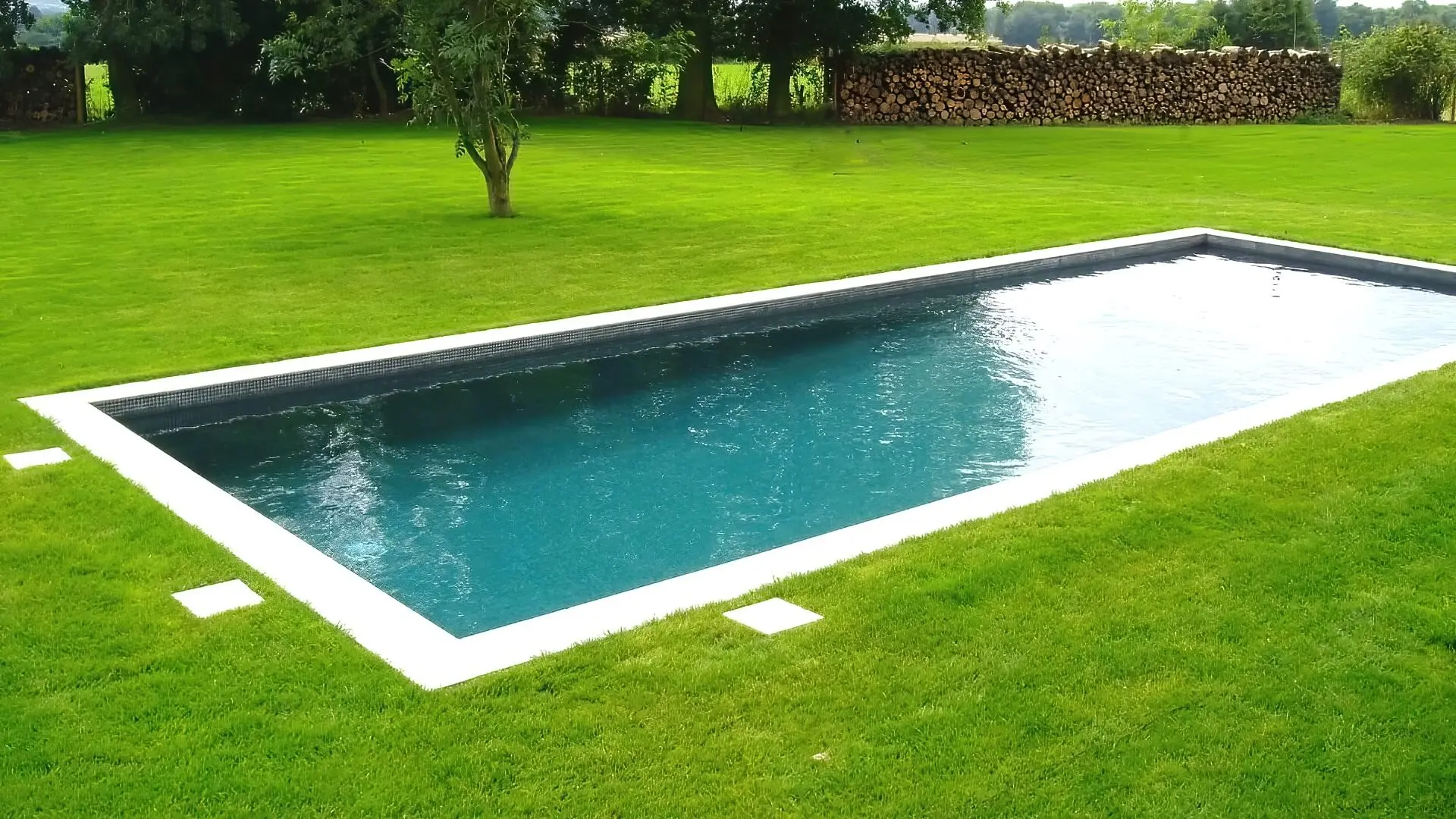
Your Lawn And Pool Water
So, will chlorine water kill grass? There is no need to strain yourself with the thought of everyday splashes of pool water damaging your beautiful lawn. If you know what drain pool water holds and how to remove it, your pool and beloved lawn can coexist happily.
That’s it for today. But we’ll be back with more informative guides to help keep your lawn as pristine and beautiful as ever. If you require assistance with your pool water or plants in Sydney, feel free to contact us. It would be our pleasure to assist you!
So, do keep coming back to this space for more interesting reads.
